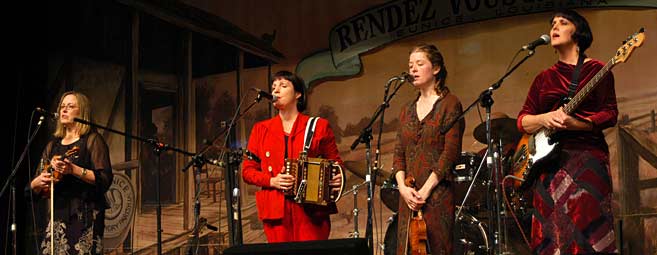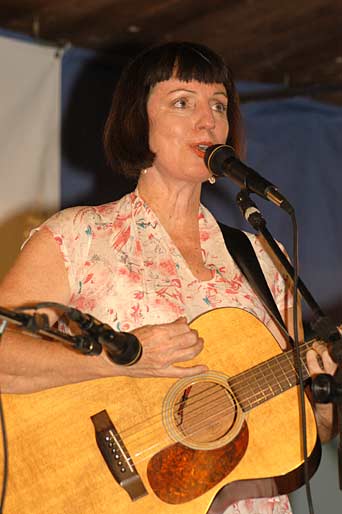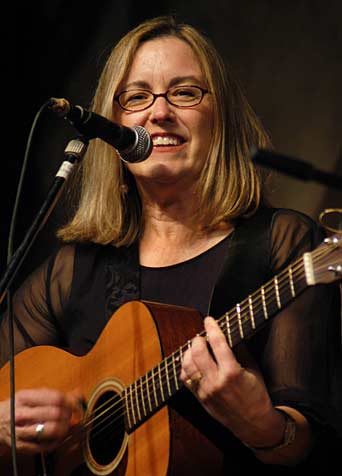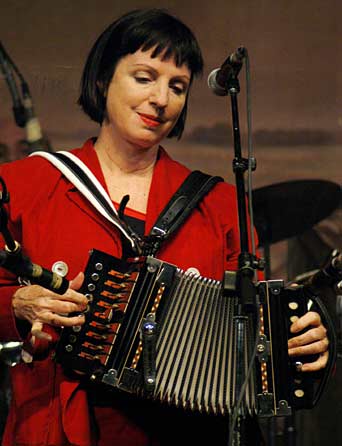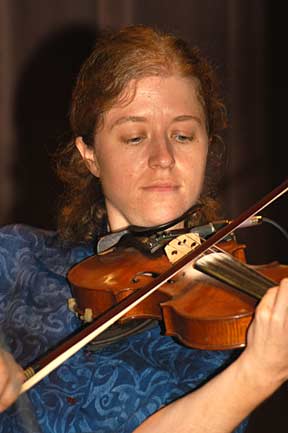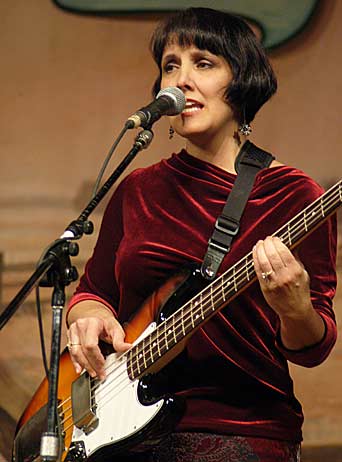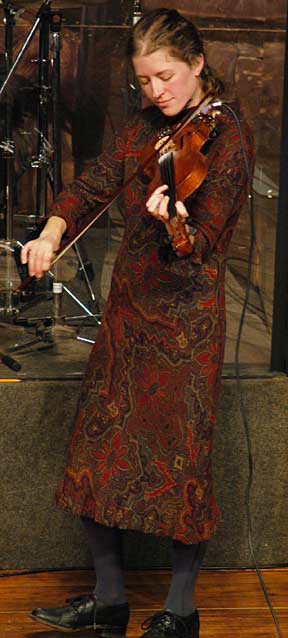|
|
Click here to go to LSUE's first page on The Magnolia Sisters and here to go to their Official Site. Click
here for high resolution photos of the Magnolia Sisters posted on Flickr. |
|
|
The top photo of Ann Savoy in this column
was taken Oct. 1 at the South Louisiana Acoustic Music Festival in |
Après Faire Le Boogie Woogie
("Doing the Boogie Woogie"), released in
October 2004 by Rounder, is yet more proof of the musical versatility of The
Magnolia Sisters. Whether they are doing the boogie woogie,
harmonizing a cappella, reviving long forgotten songs, or performing their
own interpretations of Cajun and Zydeco standards,
the result is spirited, invigorating music. By drawing on field
recordings and other research, the Sisters also showcase the richness of the
traditions of French music in "Honky Tonk Boogie," sung in dancehall style by Lisa Trahan, is a tune once played by the famous swing style Cajun fiddler Harry Choates. Lisa also handles the lead vocals on "Les Flammes d'Enfer" (in the Sisters' own version of this standard); "Lève tes Fenêtres Hautes" (same tune as "Bosco Blues" and "World in a Jug," but the lyrics are from Cléoma Falcon Breaux in 1934), and another old song, Ambrose Thibodeaux's "Point Noir Two-Step," plus "Viens à la Maison," a tribute to Lisa's great uncle, Bixy Guidry, who sang it in the 1930s. Ann Savoy sings Pierre Varmin Daigle's "La Valse de la Vie" (one of the most beautiful waltzes in Cajun music, originally performed by Cajun Gold); the haunting "Cher Willie," a Cajun ballad set to a different melody; Michael Doucet's tribute to "Freeman's Zydeco"; "Tante Nanan" (another Creole song, as learned from Preston Frank); and her own "Magnolia Hop," a joyous, rollicking, yes, hopping tune to accompany lyrics of lament. Jane Vidrine sings "Nonc Adam," another Zydeco favorite, and the French lyrics on "Keep a Knockin'," with Anya Schoenegge handling the especially sassy English words. Jane also does the lead vocals on "Charpentier," one of several songs that feature the
Sisters' beautiful vocal harmony, accompanied by twin fiddles on this song.
The Sisters harmonize a capella on "Ma Petite
et Mignonne" (a ballad inspired by Edius Naquin). They sing together on "J'ai vu Lucille," based on a 1930s Lomax recording of Ella, Elita,
and Mary Hoffpauir in The sole instrumental number is "La Femme d'Un Petrolier," a beautiful original twin fiddle number by Jane Vidrine. The recording faithfully reproduces one of the special pleasures of listening to The Magnolia Sisters live: everything is nicely balanced, from instrumentation in which each sound is clearly audible and perfectly blended to the amazing vocal harmony.
|
|
All photographs and text by David Simpson. Return to the Cajun, Creole, and Zydeco Music Home Page.
|
|
